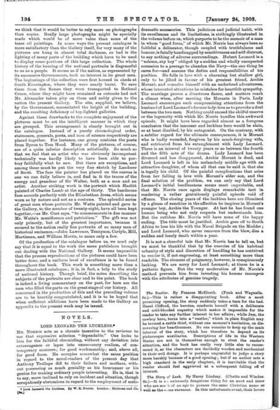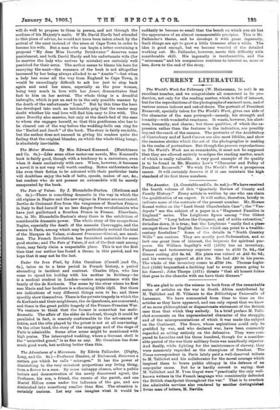Tha Story of Leah. By Harry Lindsay. (Chatto and Windns.
6s.)—It is a I extremely dangerous thing for an aunt and niece who are mu h of an age to possess the same Christian name as well as the same surname. In this unfortunate event, their lovers will do well to propose to them in person, and not through the medium of his Majesty's mails. If Mr. David Hardy had attended to this piece of advice, he would not have been taken aback by the arrival of the aunt instead of the niece at Cape Town in order to become his wife. But a man who can begin a letter containing a proposal "My dear Miss Dorothy Drinkwater " deserves some punishment, and both David Hardy and his unfortunate wife (for he marries the lady who arrives by mistake) are certainly well punished for their error. The author seems to blame his hero for marrying the aunt—the romance of the book is not altogether increased by her being always alluded to as "Auntie "—but when a lady has come all the way from England to Cape Town, it would be exceedingly difficult to ask her just to step back again and send her niece, especially as the poor woman, being very much in love with her fiancé, demonstrates that fact to him on her arrivaL The whole thing is a dreadful imbroglio, which is put an end to in the only possible manner by the death of the unfortunate " Leah." But by this time the hero has developed into such an intolerable prig that the reader may doubt whether his real love will find him easy to live with. The niece Dorothy also marries, but only at the death-bed of the man to whom she engages herself, so that this gentleman also has to be cleared out of the way before the wedding-bells can ring for the "Rachel and Jacob" of the book. The story is fairly readable, but the author does not succeed in giving his readers quite the feeling that the original blunder, on which the whole thing hangs, is absolutely inevitable.







































 Previous page
Previous page